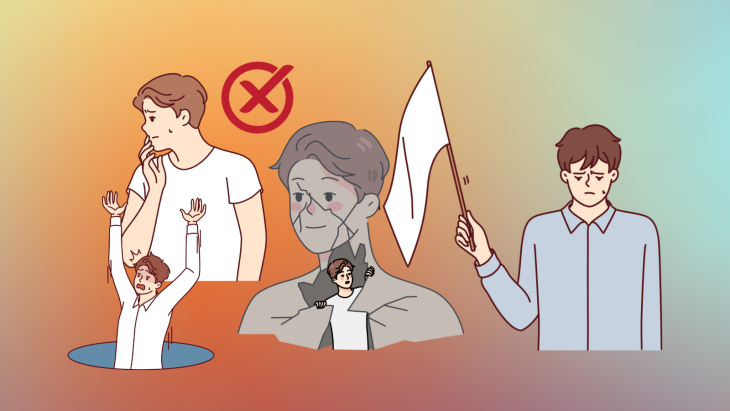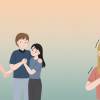Recent Posts
- The Anxious Generation. What is causing Gen Z's mental health crisis?
- Do you have to play games to make relationships work?
- Can a Therapist Find love? The Dating Life of a Therapist.
- Can a Therapist Benefit from Therapy?
- My kid's schedule is fully packed with after-school activities everyday. How much is too much?
Most Popular
My fear of rejection stops me from living my life! Help!

Memories that seem to be etched in our minds are those when we were at the height of our emotions. Unfortunately, research has shown that most people tend to remember more negative experiences clearly than positive ones. One explanation for this is that our brain wants to keep us from danger and increase our chances of survival.
If you were asked about a negative experience, an experience of being rejected, or feeling fearful of being rejected may come up. That’s because many of us go through this unpleasant experience at some point in our lives.
Effects of fear of rejection
The fear of being socially excluded may mean that we perceive our importance to others is low or our value in the relationship with others is in danger.
This causes fear that can affect us both internally and how we behave towards others.
Internal effects of fear of rejection include:
- Hurt feelings
- Jealousy towards others
- Shame and guilt
- Anxiety
- Developmental risks in children
- Lack of self-confidence
How we behave towards others, as affected by fear of rejection
- Assuming negative thoughts in our relationships ( “I am unworthy or unlovable. I don’t give any value to this relationship.” )
- Behaviors rooted in these negative beliefs lead us to fulfill our negative thoughts.
- Engaging is overly self-protective behavior or putting up emotional walls around us, so people do not have access to us and they can’t hurt us.
- Jumping to conclusions that others are out to reject us, so when we are triggered, we also reject others before they have a chance to reject us.
Handling fear of rejection
- Change the way we think, from fearful to realistic.
In psychology, changing our frame of mind is done through cognitive restructuring. It is anchored in the belief that when we change our mindset, we can change our attitudes and behavior.
Our fear or rejection reside in our thoughts, and produce stress. By replacing them with more realistic thoughts, we control stress too.
For example: When you send your report or presentation to your supervisor and they send them back to you with feedback and it contains a lot of points for improvement.
We may think, “Oh. Clearly, my supervisor does not like me or my work. This means I am not capable of my job and I won’t be successful in this career.
One negative thought led to another and emotions spiral out of control.
We can ask ourselves, “What evidence supports my feelings and thoughts?”, “Are my supervisor’s comments on my work valid?”
Lastly, we can reframe our thinking by saying, “My supervisor’s comments will help me produce a better presentation. By giving me feedback, she is supporting me to succeed in my work.”
There is then less stress produced in this line of thinking.
- Build your confidence through internal validation.
It is okay to feel good when our work is praised by others, but it is not a sustainable way to build our self-confidence.
Instead, practice validating yourself first and make your inner voice your supporter. You can do this by speaking about yourself kindly. Practice expressing gratitude about the things in your life daily. Say to yourself the good things that worked for you after doing a difficult task. Reward yourself for big or small achievements.
- Become more resilient through challenges.
People who excel in their field have often experienced multiple rejections. But what makes them so special is their ability to accept rejection as part of our journey to reach our personal goals.
Whenever you get the chance to do something challenging, put yourself out there, and take calculated risks. Over time, you become more resilient and closer to your goals.
Rejection is unavoidable in life, but learning to manage the fear of being rejected allows us to see and seize more opportunities, create stronger relationships, and build a resilient character.
Discover numerous career opportunities in healthcare and connect with job opportunities in the medical industry all over the US!








Comments